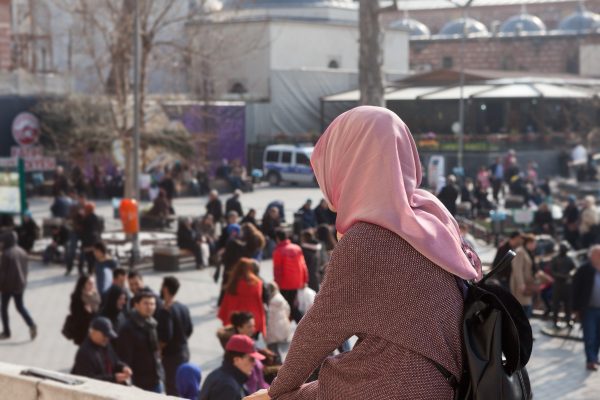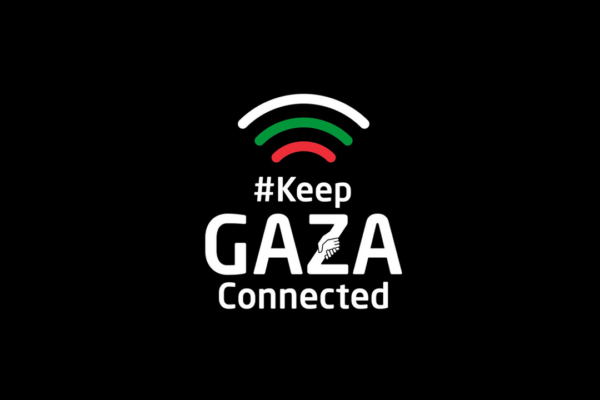Muslims are not a monolith and our talents and passions can lend themselves to lots of different fields. And there are plenty of white people in the workplace who get it and will support us. We have huge potential and bags of talent. We shouldn’t settle for less and we should speak up/write about our experiences.
Muslims are not a monolith and our talents and passions can lend themselves to lots of different fields. And there are plenty of white people in the workplace who get it and will support us. We have huge potential and bags of talent. We shouldn’t settle for less and we should speak up/write about our experiences.
Part 3: The show must go on
Challenging unconscious biases that can lead to discrimination is a work in progress and we just have to strengthen our voice. My experiences however have made me a lot firmer in my belief of who I am. I don’t want to be the right fit if it means I basically morph into a white person with white ideals and white values. And if you are reading this and are able to relate, neither should you have to feel this way.
I think I could have easily succumbed to the pressures of transforming into ‘white’ had I not had the support to talk through my experiences with trusted loved ones grounded in their faith in Allah. And that is what has encouraged me to share my experiences.
The strength and comfort in our identity we feel when we are at home, with loved ones, in our happy spaces, in prayer, in blessed spaces, in the Quran – is important. One Ramadan during a work place I was incredibly unhappy in, I spent every single hour of my lunch hour teaching Quran online in a park nearby work and it was so comforting. I would return to work and feel safe and content to be who I was. All of these connections were so important to me in making sure I knew I wasn’t the problem and I am proud to be a Muslim.
I’m writing this as a way of keeping these connections going and hoping it can land in the lap of someone who really needs to hear this. I hope it can contribute in documenting our experiences so that we know we are not alone and Allah will always grant us the best outcomes, and these outcomes are even greater when we hold tight to His rope.
To conclude, I jotted down some bullets below that helped in preserving my mental health and doing the best I could in terms of seeking accountability in the workplace. They’re not one glove fits all for sure, but perhaps one or two could be of use.
Just a point to bear in mind, I can only speak of my experiences which are perhaps more common and extreme in certain fields such as the corporate and private sector – which are predominantly white. But even institutions like the NHS and universities are subject to scrutiny over racial disparities in the workforce. And I think you’ll find, in any institute, the higher up you go, the less diversity there is.
1. Never describe your experiences as thoughts, feelings, or emotions.
They are your experiences and if someone doesn’t like hearing them, then their inconvenience is not for you to unpack. Never let someone co-opt your experiences as thoughts and feelings. They happened to you. You own your experience.
You will notice when you seek to address any such issues, the response will probably be something like: It’s a shame you feel that way but I can assure you that X has never been known to be racist/sexist/unfair etc. Respond back and say: ‘If I may, this isn’t a feeling rather this is what I experienced and this is my account of events.’ Even if you feel like bursting into tears, try and remain as calm and factual as possible.
2. Speak to someone.
If you can’t find someone you can trust in the workplace, speak to someone you can trust. Someone who can hug you and tell you that you are not making things up in your head and your experiences are real.
When I started speaking about my experiences to family and friends, I could not believe the amount of understanding and empathy I received. I learned so much about what they had also encountered and it gave me such a huge source of support knowing that others could relate too.
3. Speak with trusted work colleagues.
I was surprised when I opened up to trusted colleagues about some of my experiences how easily they understood what I was going through. And this helped massively as you learn to come to terms with the fact that bigotry, misogyny, general meanness won’t just be impacting you – even though it may feel like this at times. Others will have picked up on these traits and could also have been subjected to them.
It also helps in knowing that there is a sense of comradery amongst others where you work and you can help build a better perspective about how worthwhile it is staying in that job or looking for something else.
4. Pick your battle.
Is it only worth saying something if you plan on staying in that job long term and need things to get better? Or is it not worth saying anything if you are planning to leave as soon as possible and need a good reference? I’ve been in both situations. And in both, I have spoken out. But that was because I had the support to do so and knew my life wouldn’t be made hell if I spoke out.
So think carefully about this one. Again, speak to a mentor or someone wise that you can trust. Which brings me on the next point…
5. Find a mentor.
This could be a friend, colleague, family member… whoever it is, have someone or a couple of people that you can speak to about your career challenges. Make sure they are people who get it. This is important.
They need to be someone who is well versed in race and the types of challenges that are unique to us so that they can give you tailored advice.
6. Know the beginning is always the most difficult.
The first couple of times this happens, it really stings and can hamper your confidence. But as time goes on, you learn to be able to call it out for what it is. You will gain that confidence back and be able to stand up for yourself much earlier on in the process. I have made it a habit to discuss diversity when interviewing for jobs.
7. You are not the problem.
Know that the problem is with them and not you. You are an incredibly talented and culturally rich person who threatens the existence of traditional groupthink and anything that isn’t white.
8. Don’t lose faith with humanity at large.
There are amazing white people out there who can also be your allies and backbone when it comes to untangling unconscious bias in the workplace. I have made some great white friends through these workplaces and wouldn’t change that despite having gone through the experiences I faced. Don’t lose faith in the people around you or humanity at large.
The main thing I have learned whilst navigating white spaces in the professional world has been that there is definitely ample space to have more people like us working alongside our white counterparts. We have so much to offer in terms of life experiences, cultural richness, and tenacity to share our ideas.
Muslims are not a monolith and our talents and passions can lend themselves to lots of different fields. And there are plenty of white people in the workplace who get it and will support us. We have huge potential and bags of talent. We shouldn’t settle for less and we should speak up/write about our experiences.
One of the biggest annoyances and admin headache organisations have is that someone will publicly oust them as discriminatory or create paper trails documenting such grievances. And though I don’t advocate for this as a go-to tactic, I do advocate speaking to someone you can trust to gather your experiences and understand what is happening. Whether this results in further action or peace of mind that you are not powerless, the important thing is to know the power and ability to act lies with you.
My experiences have opened my eyes to the larger debates around Muslim women in the workplace. I encourage you to have a look at this important work that was carried out by Dr Suria Bi: Empowered employment: Unlocking the workplace for Muslim Women.
As everyone veers their own learning through the working world, here’s to the hope we can all work in places where we are respected and valued. There is wisdom in going through the not so nice places so that we are better equipped to make things better and more just for our sisters who are to join us in the future. This is especially the case in career trajectories that are not well trodden by people coming from non-white backgrounds.
And though we can’t change much overnight, let’s keep talking and sharing. Let’s make it easier for our professional mental health through reaching out to one another and not dissolving any aspect of that which we are – for careers that can definitely accommodate for all that you are.








